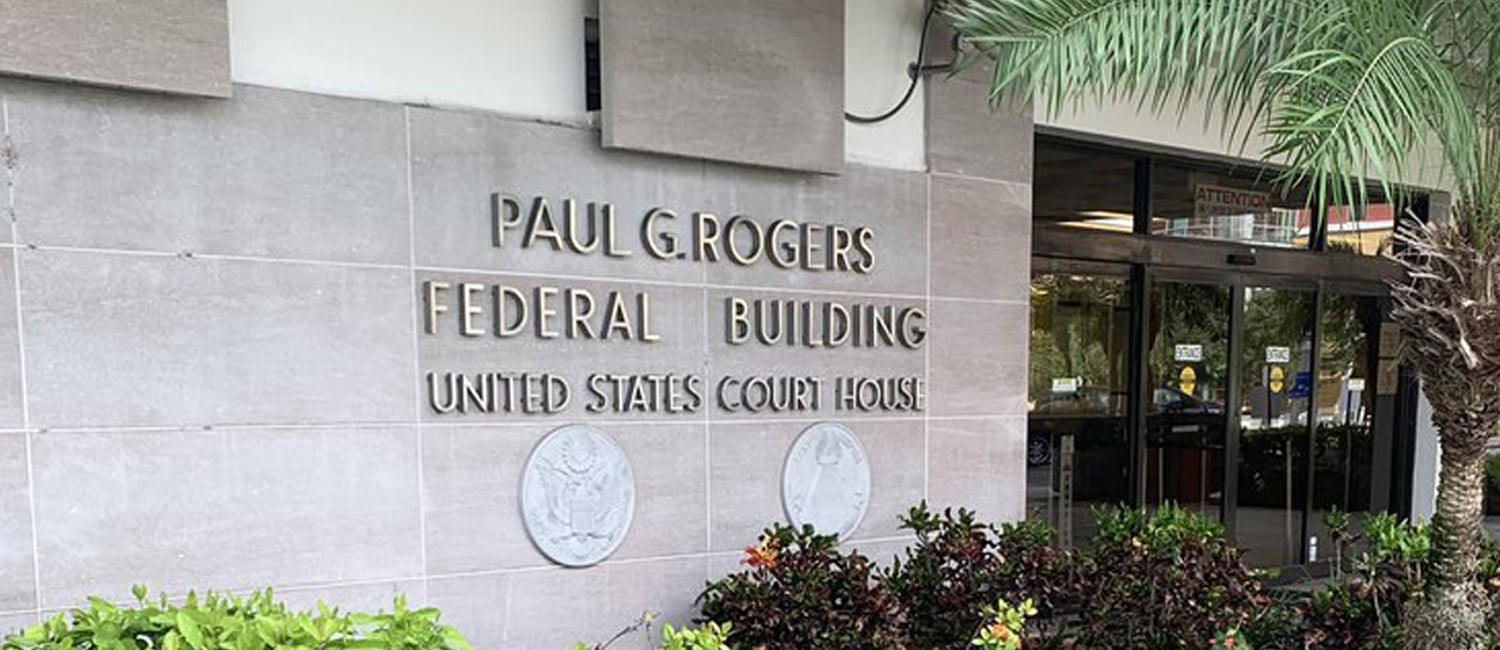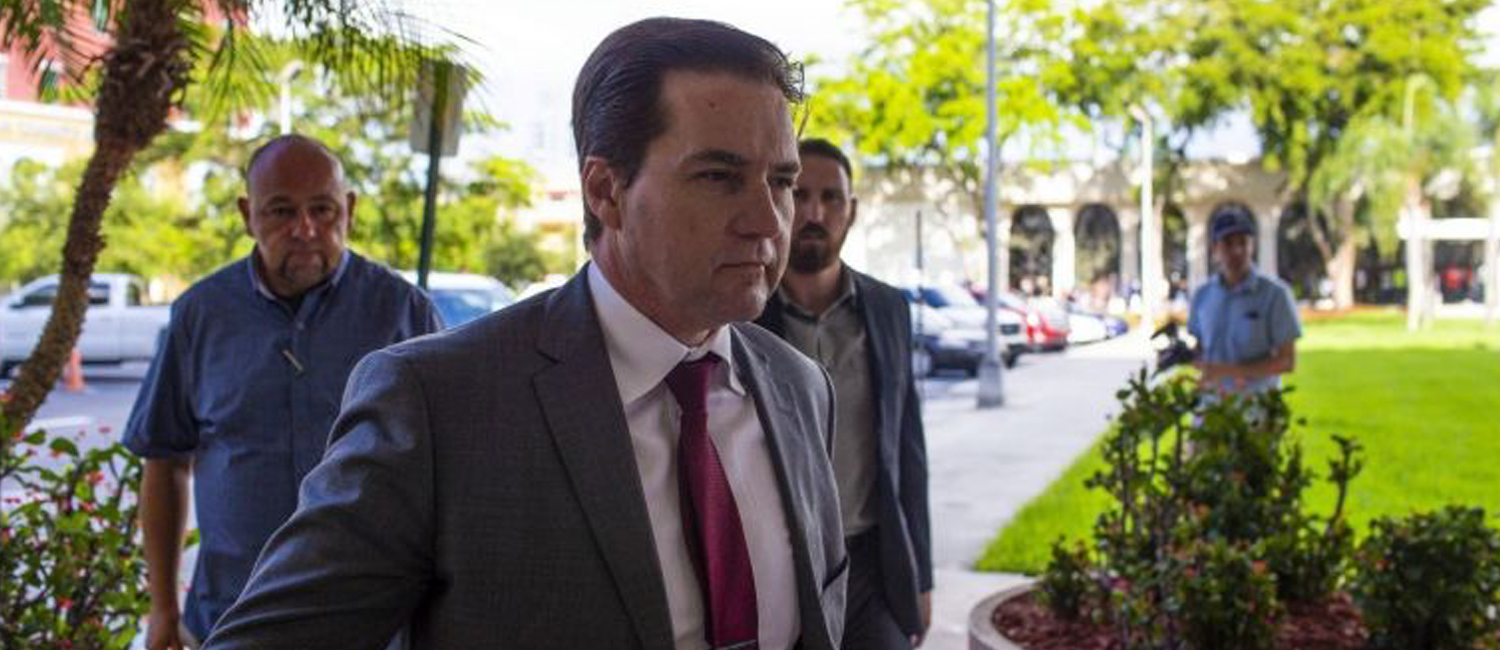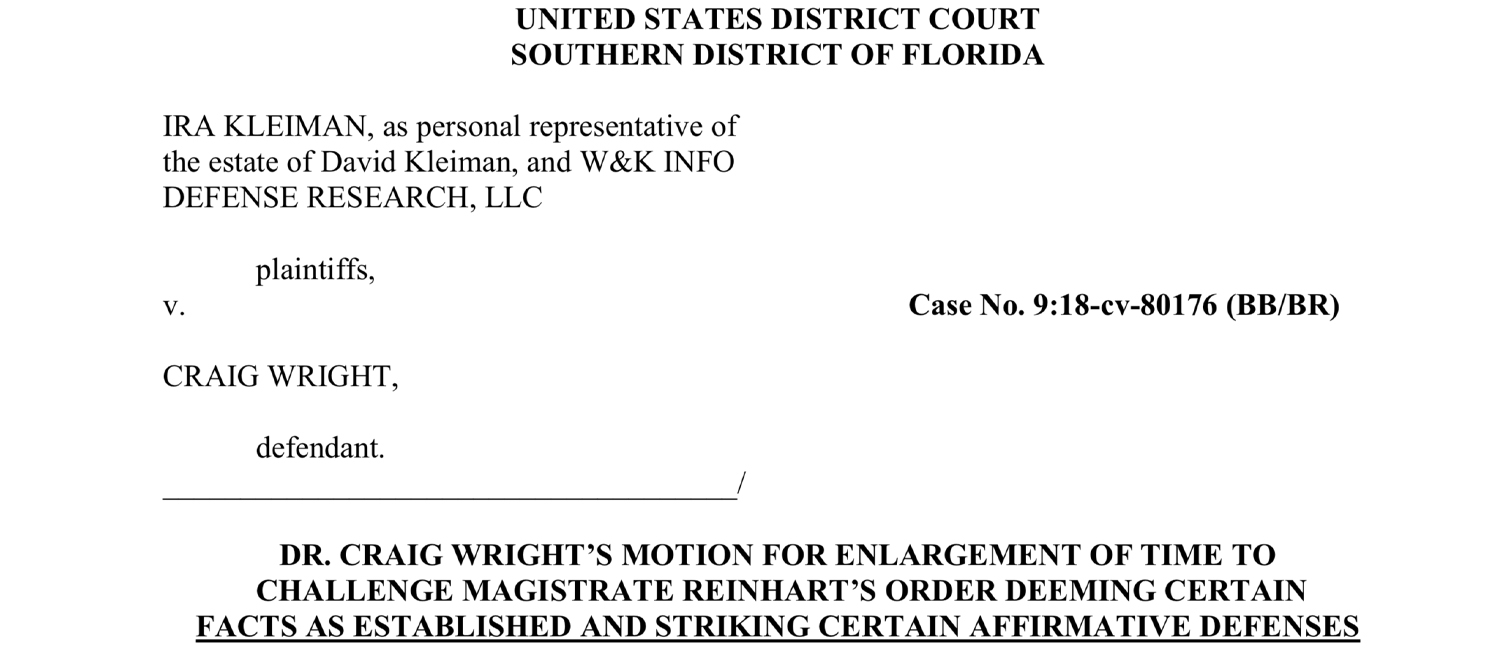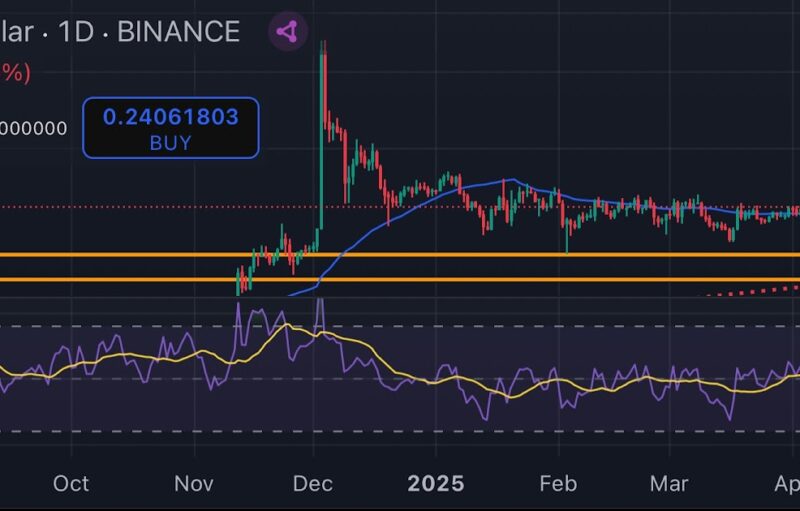
Craig Wright is looking to challenge Judge Reinhart’s decision and has asked the court for an extension of time in order to dispute the August 27 ruling. Wright was recently instructed to distribute 50% of his BTC holdings allegedly mined before 2014 and intellectual property (IP) to the Kleiman estate. Wright’s legal counsel based in Florida also detailed they need more time because Hurricane Dorian is forcing the attorneys to expend energy preparing.
Also Read: Bitcoin.com’s Premier Cryptocurrency Exchange Is Now Live
Judge Reinhart’s Ruling and Critique of Wright’s Arguments
The person who claims he invented Bitcoin, Craig Wright, has asked for an extension of time in order to challenge Judge Reinhart’s recent ruling. The motion to compel order explains that Craig Wright should distribute 50% of the BTC supposedly mined by Wright and Kleiman before December 2013. Half of the patents related to the Bitcoin network and technology filed prior to David Kleiman’s death must be given to the Kleiman estate as well. The case started on Valentine’s Day 2018 and involves the multi-year business relationship between Kleiman and Wright. The Kleiman family, specifically Dave’s brother Ira, believes that Wright defrauded and manipulated Dave’s inheritance and rights to his intellectual property.
 The federal courthouse where most of the proceedings have occurred is located in West Palm, Florida.
The federal courthouse where most of the proceedings have occurred is located in West Palm, Florida.
“For purposes of this action, it is established that Dr. Wright and David Kleiman entered into a 50/50 partnership to develop Bitcoin intellectual property and to mine bitcoin,” the court order on August 27 states. “Any Bitcoin-related intellectual property developed by Wright prior to David Kleiman’s death was the property of the partnership.” Reinhart’s ruling adds:
Any bitcoin mined by Wright prior to David Kleiman’s death (the partnership’s bitcoin) was the property of the partnership when mined. Plaintiffs presently retain an ownership interest in the partnership’s bitcoin and any assets traceable to them.
Judge Reinhart also emphasized that Wright’s story “not only was not supported by other evidence in the record, it defies common sense and real-life experience.” The scathing critique of Wright’s defensive arguments continued by venturing that the infamous Tulip Trust might not even exist. “After observing Dr. Wright’s demeanor and the lack of any other credible evidence in the record that this file exists, I find that a preponderance of the evidence establishes that no such file exists and that Dr. Wright’s testimony was intentionally false,” Reinhart asserted.
 Craig Wright.
Craig Wright.
Motion for Extension and Hurricane Dorian
Now Wright’s legal team has filed document 278 for an “Extension of Time” in order to file a motion challenging Magistrate Reinhart’s August 27 order. Wright is represented by the Miami-based Rivero Mestre LLP and the recent extension filing explains that “Wright does not concede that Magistrate Reinhardt had the power to enter the order that he did.” The team needs a 14-day timeframe to submit his arguments to the judge and blames Hurricane Dorian for holding the legal team back.
 The motion for a 14-day extension.
The motion for a 14-day extension.
“Hurricane Dorian is expected to make landfall in Florida early next week and counsel for Dr. Wright have been expending significant time preparing for the hurricane, which has limited their ability to work on this matter,” the extension filing details. The court document written by Rivero Mestre further states:
Dr. Wright submits that it is crucial that his attorneys have sufficient time to submit his challenge. The testimony and evidence submitted in the two days of evidentiary hearings are voluminous, the facts and legal issues are extremely complex, and the sanctions issued by Magistrate Reinhart go to the heart of the case and the defendant’s ability to defend against the billion-dollar claims lodged against him.
Wizsec’s Criticism
“Two preliminary points — First, the Court is not required to decide, and does not decide, whether Defendant Dr. Craig Wright is Satoshi Nakamoto, the inventor of the Bitcoin cybercurrency,” the order reads. “The Court also is not required to decide, and does not decide, how much bitcoin, if any, Dr. Wright controls today. For purposes of this proceeding, the Court accepts Dr. Wright’s representation that he controlled (directly or indirectly) some bitcoin on December 31, 2013, and that he continues to control some today.”
Judge Reinhart ordered sanctions under Rule 37 as punishment for Wright’s willful misconduct during discovery. pic.twitter.com/KV3HfUP6V7
— WizSec Bitcoin Research (@wizsecurity) August 27, 2019
Wizsec writes that the decision was not a default judgment and noted that Reinhart did not strike down Wright’s argument in a punitive sense, but the researchers believe “the outcome is almost the same.”
“Wright can no longer argue that Kleiman didn’t own 50% of assets or that he gave his rights away, which will make it extremely hard to defend himself in the remaining trial — It’s almost as if the judge ruled that the plaintiff’s claims can no longer be proven wrong,” Wizsec’s post opines.
The court has granted Wright’s wishes and a paperless order on the Kleiman v. Wright docket shows Judge Beth Bloom has approved the motion for extension of time to file challenge to the magistrate judge’s order by September 24, 2019.
What do you think about Craig Wright’s attempt to challenge Judge Reinhart’s order? What do you think about the Kleiman v. Wright case so far? Let us know what you think about the subject in the comments section below.
Image credits: Shutterstock, Courtlistener, Wiki Commons, and Pixabay.
How could our Bitcoin Block Explorer tool help you? Use the handy Bitcoin address search bar to track down transactions on both the BCH and BTC blockchain and, for even more industry insights, visit our in-depth Bitcoin Charts.
The post appeared first on Bitcoin News






